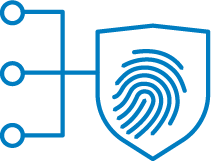
- Home
- Apigee
Integration detail
Apigee
Overview
Apigee is APIs leader three times running. Apigee positioned highest for execution and completeness of vision in full lifecycle API management.
The Challenge
- Keeping track of APIs is difficult, even if they’re used only by internal developers
- Making APIs available to outside developers opens up your ecosystem to millions of calls and threats
- Ensuring APIs can scale adequately can help create a new revenue stream
- Maintaining API version control, securing, and managing APIs puts an enormous strain on IT
The Solution
Create, test, publish, and produce APIs from a single environment, and automatically generate API documentation
Maintain tight version control, so developers are always accessing the correct version of any API at all times
Provision API access as easily as provisioning application access and define access with flexible policies based on user profile, groups, network, client, and consent
Update or revoke access to APIs instantly with user permissions based on user profile and status
Meter usage to ensure that developers are accessing APIs only as often as agreements allow
Create, maintain, and audit API access policies from one user-friendly console—no custom coding required
Documentation
Here is a section all about documentation, integration, and implementation.
-
Datasheet:
Control, Manage, and Scale APIs Securely
Read it


